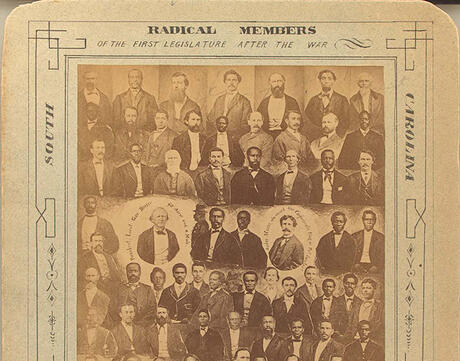
Integrating Primary Sources into Black History Lessons
Primary sources—original documents, media, or objects from the time of origin—are powerful tools that give us glimpses into the thoughts and actions of people from the past from their contemporaneous point-of-view. Using primary sources for learning can also be fun—think academic time travel.
In addition to the unique nature of primary sources, their use in the classroom develops analytical skills, especially as this content is often missing full context or component parts. The Library of Congress says, “Helping students analyze primary sources can also prompt curiosity and improve critical thinking.”
Everyone makes assumptions, and it’s easy to have a set idea about moments in history gleaned from popular narratives. Studying primary source material enriches those narratives, adding dimension and complexity to previous eras.
Facing History’s article 5 Ways to Teach With Primary Sources provides teaching strategies that can guide you as you integrate first-hand historical pieces into your lesson plans.
Facing History offers a selection of primary sources that each tell a one-of-a-kind story related to Black History, from personal moments to landmark events.
Image: The First South Carolina Legislature
See a photographic montage of the 63 members of South Carolina’s 1868 state legislature, the first state legislature with a Black majority.
Reading: Changing Names
Three formerly enslaved people discuss their names and the changes they underwent after Emancipation.
Reading: Freedpeople Protest the Loss of Their Land
The Committee of Freedmen on Edisto Island, South Carolina wrote a letter to Freedmen’s Bureau Commissioner O.O. Howard responding to President Johnson’s land policy.
Audio: Studs Terkel Interview with Emma Tiller
Studs Terkel interviews Emma Tiller, a cook who describes how African Americans would feed people who were in need during the Great Depression, without any regard to their skin color.
Art: Angela Davis: OUTspoken
A former exhibition at the GLBT Historical Society Museum showcased posters and other images depicting Black lesbian activist, scholar, political prisoner, and public intellectual Angela Davis.
Letter: By John Moody in 1961
This was written by Moody to his parents about the Freedom Rides as he sat in the Hinds County jail in Mississippi.
Article: ‘Unity With Purpose.’ Amanda Gorman and Michelle Obama Discuss Art, Identity and Optimism
Former First Lady Michelle Obama interviews Amanda Gorman, the first person ever named National Youth Poet Laureate and the inaugural poet in 2021.

